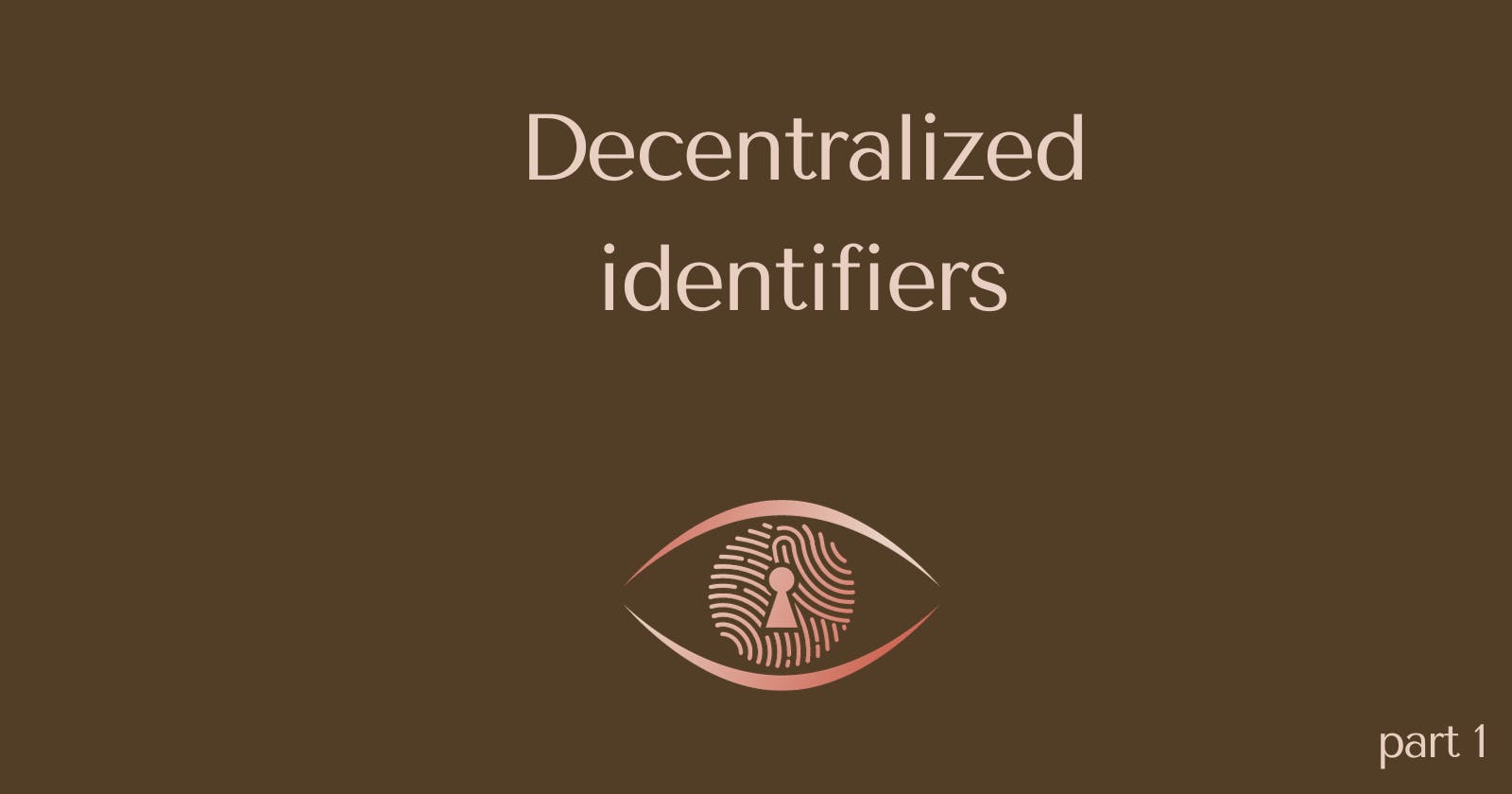Decentralized Identifiers (DID) are gaining ground as a promising technology system for identity verification. In recent years, there has been a growing need to address issues related to confirming the identity of individuals online and verifying their credentials. Various organizations initially proposed different solutions, but eventually, the World Wide Web Consortium established a standardized specification to unify DID adoption across different entities.
As we look into Decentralized Identifiers (DIDs), it's important to consider the context. Our increasing reliance on digital platforms is undeniable. Writing this article, I took time to monitor my screen time on both my PC and phone, and my findings reinforced the notion that our future will be profoundly digital. Unfortunately, the digital world is also infested with malicious bots and fraudulent activities. In a shocking 2023 report by Imperva, it was revealed that over 47% of all internet traffic in 2022 originated from bots, with more than 30% of these activities attributed to bad bots. If nothing is done, these numbers will only increase.
While DIDs may not be a direct solution to this problem, they play a crucial role in enhancing security and access control mechanisms, indirectly helping reduce the impact of online fraud. In the following sections, which is the first part of a series on Decentralized Identifiers, we'll explore challenges with current identification systems.
The Challenge with Current Identity Systems
Traditional identification methods involve unique identifiers across various forms, such as passports, phone numbers, driver's licenses, tax IDs, and email addresses. Similarly, web resources are assigned unique identifiers in the form of Uniform Resource Locators (URLs), with each web page having its own URL. However, concerns have arisen regarding data breaches and the unlawful monetization of personal information.
Amid the growing concerns about data privacy and security, decentralized identity is gaining prominence. With the proliferation of online services, individuals generate copious amounts of personal data, which companies and governments can easily collect, analyze, and profit from. The vulnerabilities of centralized identity systems have led to increased scrutiny due to data breaches, misuse of personal information, and a lack of transparency.
Large-scale data breaches are not the only threat to privacy. Users routinely share sensitive personal information, including national identification numbers and financial data, to access online services. Companies leverage this data for targeted advertising, demographic profiling, and sometimes even to influence user decisions.
In response to these challenges, many governments have introduced regulations to protect user data and privacy. For example, the European Union implemented the General Data Protection Regulation (GDPR), Canada introduced the Digital Charter Implementation Act, and India has its Personal Data Protection Bill. These regulations aim to prevent fraudulent and unauthorized use of personal data.
An Attempt at Convenience: Social Logins
To streamline the onboarding process for online platforms, the concept of social logins emerged. Social logins, also known as social sign-ins or social authentication, allow users to access websites, apps, or online services using their existing social media or identity provider credentials. This eliminates creating new accounts or remembering additional usernames and passwords. For instance, some platforms offer the option to create an account by linking your GitHub, Facebook, Twitter, or other accounts.
While social logins offer convenience, they also pose challenges. These include an increased risk of data breaches and a lack of user control over their data. Centralized identity systems have faced criticism and fines for their vulnerability to data breaches, personal information misuse, and a lack of transparency. Moreover, centralized databases are prime targets for malicious actors.
What are Decentralized Identifiers (DIDs)?
Paraphrasing Dock, Decentralized Identifiers (DIDs) are globally unique identifiers composed of alphanumeric characters. They function as identifying addresses on Distributed Ledger Technology and blockchains, operating independently of any central organization. Unlike traditional identifiers like usernames or email addresses, DIDs are not tied to any centralized registry, identity provider, or authority. Instead, they are created and managed by the entities to whom they belong, providing greater control and privacy over digital identities.
Decentralized Identifiers (DID) are gaining ground as a promising technology system for identity verification. In recent years, there has been a growing need to address issues related to confirming the identity of individuals online and verifying their credentials. Various organizations initially proposed different solutions, but eventually, the World Wide Web Consortium established a standardized specification to unify DID adoption across separate entities.
Key Characteristics of DIDs
DIDs possess several key characteristics that make them a promising solution for identity management:
Independence and Security
Decentralization: DIDs are not controlled by a central authority, ensuring independence from any single organization, platform, or government.
Global Uniqueness: Similar to UUIDs, each DID is globally unique, virtually eliminating the possibility of identical DIDs.
Security and Control
Cryptographically Verifiable: DIDs are associated with public keys and cryptographic methods, enabling secure authentication and data sharing.
Self-Sovereign: Users have control over their own DIDs, allowing them to create, manage, and revoke DIDs as needed.
Interoperability and Privacy
Interoperability: DIDs are designed to work seamlessly across different systems, platforms, and blockchains, enabling cross-domain identity and data sharing.
Privacy-Preserving: DIDs can be used in a way that respects user privacy, allowing selective sharing of information with trusted parties.
Wrap UP
The main objective of this section is to discuss the challenges with current identity systems while briefly introducing Decentralized Identities. Decentralized Identifiers represent a significant leap forward in enhancing digital security and privacy. Protecting our personal data and identities becomes paramount as we navigate an increasingly digital world. Governments worldwide are taking steps to safeguard user information, and DIDs offer a promising solution to the challenges posed by centralized identity systems.
In the next part of this series, we will delve deeper into the technical aspects of DIDs, exploring how they work and their potential applications across various industries.
